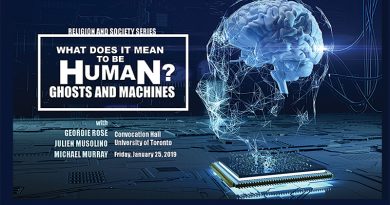Whose Church is it Anyway?
By Sharon Dewey Hetke
A FRIEND of mine has corrected me more than once when I’ve written about “our church.” It’s Christ’s church, he points out. At first, I thought he was being nitpicky, although I saw the point. But I’m beginning to think I may not be the only one who needs this correction.
Of course, God has given each of us gifts and talents to strengthen and beautify His Church. But the Church is not ours to make or mold. The tradition and teaching of the Church is received, and we are to treasure and steward its riches, and share them with the world. Certainly individual churches and councils can err, and when error is revealed, it must be corrected. But the only rationale for change is in the direction of greater faithfulness to the teachings of Christ, revealed to us through Scripture and the tradition of the whole Church.
But there are forces that would reshape the Church in the mold of the world, and using the ways of the world to do so. First, received teachings are challenged as being out of step with contemporary culture, and then the “much-needed changes” are, all too often, brought about through legal and procedural maneuvering, or even through new liturgical rites – all without proper theological and Scriptural rationale or consideration of the consensus fidelium.
Perhaps the most egregious example of this in the Anglican Church of Canada was the June 2016 Memo from Chancellor David Jones, in which he said that the existing Marriage Canon neither defines marriage nor explicitly forbids same-sex marriage, and so, he argued, same-sex marriage is in fact permissible. Since then, many across the Church have, sadly, relied on this Memo to authorize same-sex marriage rites that contravene the Marriage Canon (which in turn is rooted in Scripture and the Prayer Book).
But the Memo was not based on sound reasoning – and indeed a legal opinion by Mark Hill and Norman Doe (two leading Canon lawyers in the worldwide Anglican Communion) showed the Chancellor’s Memo to be both dubious in legal terms and unsupportable for justifying liturgical innovation.
Even more problematic is that the Memo was proposing a way to sidestep the clear teaching and tradition of the Church.
And now we see Trial Pastoral Liturgies for Journeys of Gender Transition and Affirmation coming forward to General Synod for consider- ation. A review of the Trial Liturgies raises numerous complex theological issues (and, a sidenote – legal questions as well, given the quickly changing landscape around the medical treatment of minors). But instead of engaging these questions, we are encour- aged to go ahead and liturgize this complex issue. We are altering key doctrines of the Church sideways by changing the way we pray.
Any effort at last month’s COGS meeting to raise concerns about these Trial Liturgies was shut down. Members were told that because the Liturgies concern marginalized people, there is no “other side” to consider. But Jesus, our example in all things, worked with vulnerable people and offered love, healing and truth. Can we follow Jesus in this? What would this look like in termsofministrytotransgenderpeople? We are only beginning the conversation on pastoral care.
Now consider the proposed governance change coming to General Synod (see the article below). If passed, the proposal would remove the requirement that changes in important doctrines or procedures be made only by a two-thirds majority in each House at two successive General Synods. The Governance Working Group, led by the Chancellor, wants this altered so that changes on important matters can be made more quickly and more easily, through the assembly voting as a whole, at only one General Synod. Again, a full review by COGS was not permitted at the March meeting.
While no particular voting formula is sacrosanct, it is deeply concerning – especially when we are already in a pattern of making changes by questionable means – that the goalposts may be moved through a significant change to the Church’s constitution. Watch for an essay series from the Anglican Communion Alliance later this spring that should be a major contribution on this issue.
These attempts to reshape the Church are profoundly alienating, and are contributing to a state of impaired communion. It’s not just one issue or another, it’s a growing sense that a sector of our church leadership – and it may be a smaller group than we think – is willing to implement important doctrinal changes sideways through liturgical, or legal, innovation.
I began with the reminder to us all that this is Christ’s church, not ours. Despite conflicts and storms, we are not to be consumed by anxiety or despair, but should press forward in confidence, trusting in Christ – who loves the church and gave himself up for her. TAP
________________________________________________________
*You can read the Hill & Doe legal opinion at www.anglicancommunionalliance.ca/legal-opinion-on-canons-and-procedure-in-the-anglican-church-of-canada/
Do you value TAP’s features, opinions and news coverage? Our work is sustained by your donations and subscriptions. You can subscribe online at www.anglicanplanet1.com.
And you can donate by phone at 902-368-8442; by mailing a cheque to The Anglican Planet Office, 11 All Souls’ Lane Charlottetown PE, C1A 1P9; or online at www.canadahelps.org/en/charities/st-peter-publications-inc (please designate “Anglican Planet Project” in the message box).
Donations are tax-receiptable.
Thank you for partnering with us!




